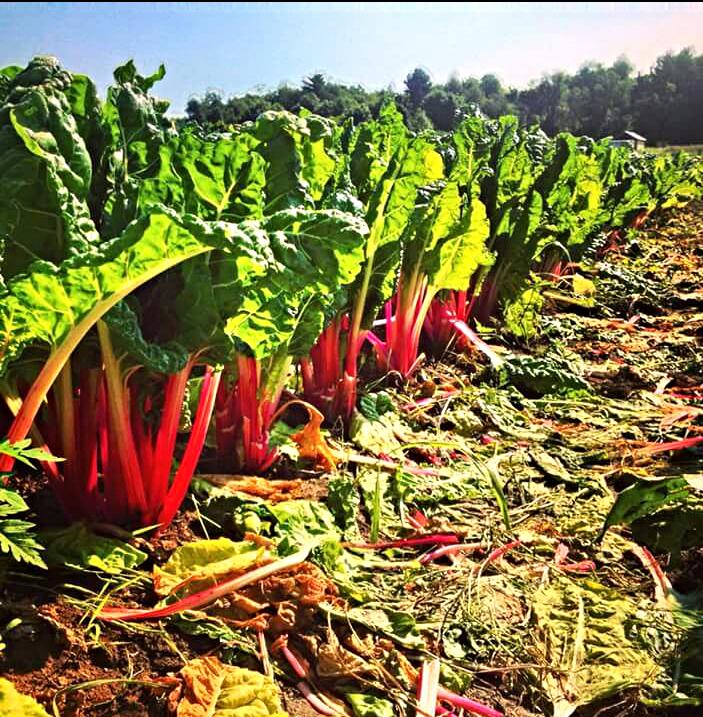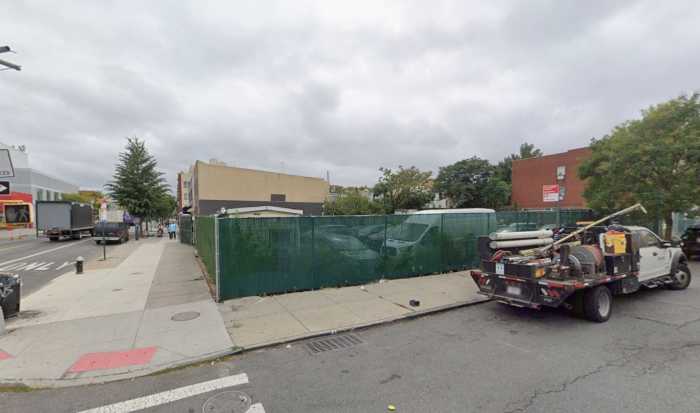BY KELLY MARIE MANCUSO
Ridgewood is about to get a lot greener with the advent of the Ridgewood Farm Share, a new organic crop sharing program spearheaded by local neighborhood organization Woodbine, located at 1882 Woodbine St. between Onderdonk and Woodward avenues.
Glenn Dyer, one of the group’s several organizers, describes Woodbine as an “organizing hub” for the community that serves as a host for numerous workshops, lectures, Sunday potluck dinners and meetings, including monthly gatherings of the Ridgewood Artists Coalition (RAC).
The folks at Woodbine have partnered with Whistledown Farm, a small pesticide-free vegetable and berry farm located upstate in Claverack, N.Y., in an effort to bring shares of fresh, locally grown produce to Ridgewood.
The Ridgewood Farm Share program will begin on July 27 and is scheduled to run through the end of October. Enrollment into the 19-week program costs a one-time fee of $500. Every Saturday, Whistledown Farm will deliver shares of freshly picked vegetables to Woodbine, where they will then be parsed out on site among the shareholders.
Each week, shareholders can expect between six and eight different items, including tomatoes, cooking greens, squash, root vegetables and exotic herbs and botanicals such as allium. The selections are seasonal and will change throughout the duration of the program.
“This is a way to facilitate the move toward people having more control over where their food comes from while supporting farms upstate,” Dyer explained. “They’re competing with really large agribusiness, who is selling us pretty terrible, poison food actually.”
In addition to forging relationships with small local farms, the members of Woodbine are hoping the program will help bridge the gap between local consumers and the origins of their food supply.
“The distance between you and that food is not just a physical distance,” Dyer said. “A lot of food in New York City is trucked in from wherever. It usually goes to Hunts Point in the Bronx and then gets filtered out from there. You don’t know where it’s from, who picked it or how much they’re getting paid.”
For Dyer, the move toward responsible, organic farming echoes a larger shift in the worldview on preserving the health and well-being of our planet and its inhabitants. He is also hopeful that the new farm share program will also have a great impact on life a bit closer to home.
In addition to the farm share, the organizers of Woodbine have been working on keeping a garden behind the venue.
“It’s a related project as well,” Dyer said. “We don’t have a lot of space in Ridgewood, so we asked, how can we take a space that’s actually totally unused for a long time and make it a lot better?”
As part of the program, Woodbine also plans to host upcoming workshops and demonstrations in the fall on pickling and preserving the vegetables for the winter months. The workshops will include lessons on preparing items like pickles and sauerkraut, both of which have long been a part of Ridgewood’s rich ethnic and culinary history.
With nearly half of the 30 available farm share slots already taken, those interested in signing up are encouraged to do so quickly.
“For us, in Ridgewood, we need to make sure that we’re setting up things like this that have a future projection and are making the neighborhood and community stronger, while giving it a stronger ability to determine its own future,” Dyer said. “Food is one part of that.”
Click here for more information.
RECOMMENDED STORIES

































